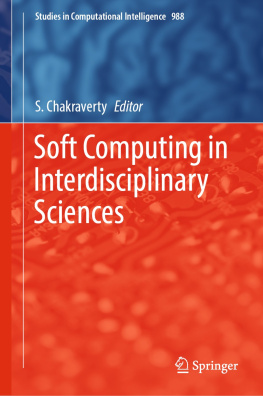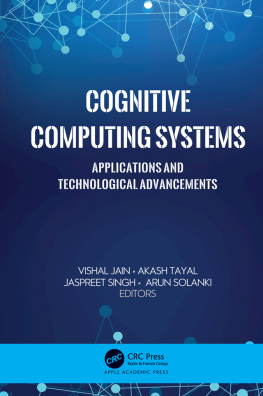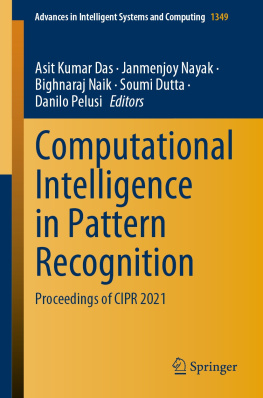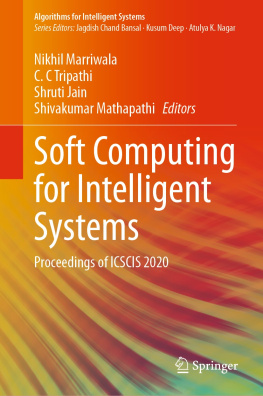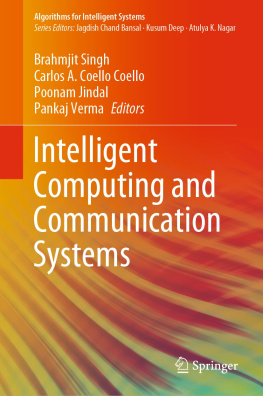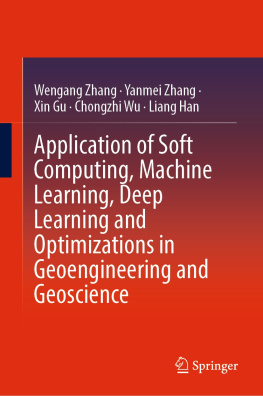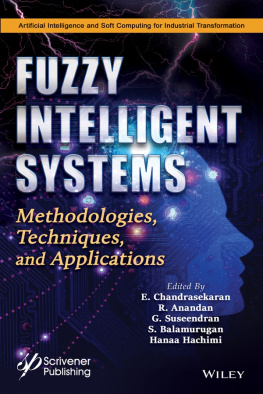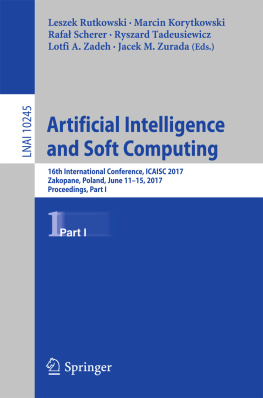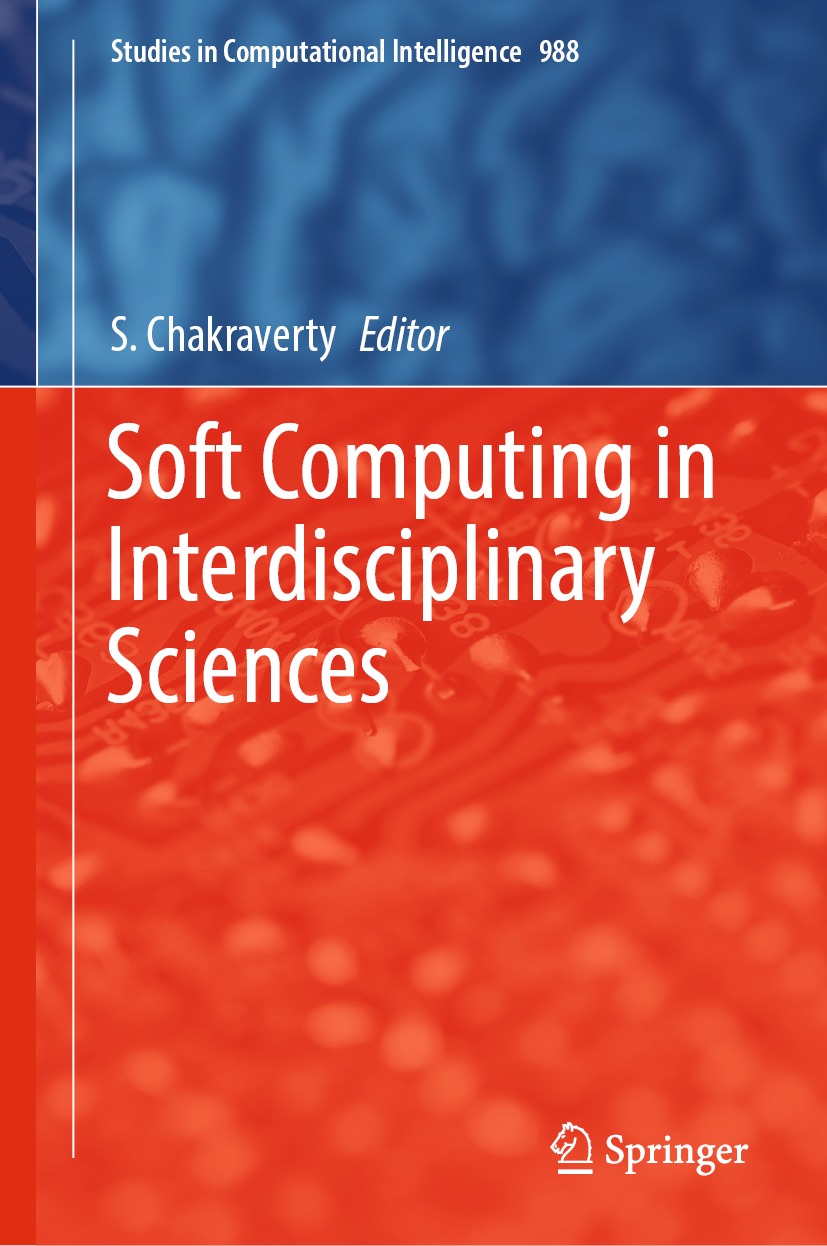Volume 988
Studies in Computational Intelligence
Series Editor
Janusz Kacprzyk
Polish Academy of Sciences, Warsaw, Poland
The series Studies in Computational Intelligence (SCI) publishes new developments and advances in the various areas of computational intelligencequickly and with a high quality. The intent is to cover the theory, applications, and design methods of computational intelligence, as embedded in the fields of engineering, computer science, physics and life sciences, as well as the methodologies behind them. The series contains monographs, lecture notes and edited volumes in computational intelligence spanning the areas of neural networks, connectionist systems, genetic algorithms, evolutionary computation, artificial intelligence, cellular automata, self-organizing systems, soft computing, fuzzy systems, and hybrid intelligent systems. Of particular value to both the contributors and the readership are the short publication timeframe and the world-wide distribution, which enable both wide and rapid dissemination of research output.
Indexed by SCOPUS, DBLP, WTI Frankfurt eG, zbMATH, SCImago.
All books published in the series are submitted for consideration in Web of Science.
More information about this series at http://www.springer.com/series/7092
Soft Computing in Interdisciplinary Sciences
1st ed. 2022

Logo of the publisher
Editor
S. Chakraverty
Department of Mathematics, National Institute of Technology Rourkela, Rourkela, India
ISSN 1860-949X e-ISSN 1860-9503
Studies in Computational Intelligence
ISBN 978-981-16-4712-3 e-ISBN 978-981-16-4713-0
https://doi.org/10.1007/978-981-16-4713-0
The Editor(s) (if applicable) and The Author(s), under exclusive license to Springer Nature Singapore Pte Ltd. 2022
This work is subject to copyright. All rights are solely and exclusively licensed by the Publisher, whether the whole or part of the material is concerned, specifically the rights of translation, reprinting, reuse of illustrations, recitation, broadcasting, reproduction on microfilms or in any other physical way, and transmission or information storage and retrieval, electronic adaptation, computer software, or by similar or dissimilar methodology now known or hereafter developed.
The use of general descriptive names, registered names, trademarks, service marks, etc. in this publication does not imply, even in the absence of a specific statement, that such names are exempt from the relevant protective laws and regulations and therefore free for general use.
The publisher, the authors and the editors are safe to assume that the advice and information in this book are believed to be true and accurate at the date of publication. Neither the publisher nor the authors or the editors give a warranty, expressed or implied, with respect to the material contained herein or for any errors or omissions that may have been made. The publisher remains neutral with regard to jurisdictional claims in published maps and institutional affiliations.
This Springer imprint is published by the registered company Springer Nature Singapore Pte Ltd.
The registered company address is: 152 Beach Road, #21-01/04 Gateway East, Singapore 189721, Singapore
Preface
Soft computing is the recent development about the computing methods which include fuzzy set theory/logic, evolutionary computation (EC), probabilistic reasoning, artificial neural networks and other machine learning, etc. Soft Computing is the connection of computational and artificial intelligence with other science and engineering disciplines, which investigates governing models and analyzes related problems from different inter- and multidisciplinary areas. Traditional computing in general deals with approximate numerical methods whereas soft computing can handle imprecision, uncertainty, partial truth, and approximations.
Interdisciplinary sciences address different problems of science and engineering utilizing more than one or more areas. Correspondingly, increased dialog among these disciplines has resulted in this new book. The aim of this book has been to target the present and future requirements for the interaction between various science and engineering areas on the one hand and different branches of soft computing methods on the other.
In view of the above, this book includes a total of 12 chapters. Interval and fuzzy uncertainty-related issues are addressed in Chaps. 15. Machine intelligence problems are included in Chaps. 68. Chapters 911 include related problems of Internet of Things and causality. Lastly, hybrid evolutionary computing and dual parametric-based approach are targeted, respectively, in Chaps. 12 and 13.
As regards, Chap. 1 is contributed by A. M. C. H. Attanayake and S. S. N. Perera where interval regression has been used for predicting dengue outbreaks. This chapter discusses theories of interval regression procedures; Center method, Center and Range method, Constrained Center and Range method, interval regression based on interval least squares algorithm, and fuzzy regression techniques.
In general, the material and geometrical properties in the dynamic analysis of structural systems are assumed to be in crisp (or exact) form. However, due to several errors and insufficient or incomplete information of data, the uncertainties are assumed to be present in the material and geometrical properties. These uncertain material and geometrical properties may be modeled through convex normalized fuzzy sets. In this regard, a fuzzy-affine approach is developed by S. Rout and S. Chakraverty in Chap. 2. This chapter deals with the dynamic analysis of various structural systems, viz., multi-degrees-of-freedom spring-mass system and multi-story frame structural system, etc. by adopting the proposed approach.
Developing a weather index is a quite sophisticated task due to the uncertainty of the factors associated with the phenomena. As such, Chap. 3 includes the fuzzy-based weather index problem by I. T. S. Piyatilake and S. S. N. Perera. The uncertainty is handled here by fuzzy theories to identify the weather-related risk in different regions.
Type-2 fuzzy linear eigenvalue problems are considered by D. Mohapatra and S. Chakraverty in Chap. 4 along with application in dynamical problems of structures. Triangular perfect quasi-type-2 fuzzy numbers are used and four parameters are utilized to solve the problems in parametric form.
In Chap. 5, fuzzy dynamical system in alcohol-related health risk behaviors and beliefs is addressed by Maranya M. Mayengo, Moatlhodi Kgosimore, and S. Chakraverty. A mathematical model has been developed for alcohol-related health risks incorporating fuzziness in uncertainties associated with individual risk behavior and induced death rate.
Artificial Neural Network (ANN) has been convincingly used in the past few years for finding the solution of differential equations (DEs). Accordingly in Chap. 6, Arup Kumar Sahoo and S. Chakraverty addressed an alternate learning method, viz., Curriculum Learning-based ANN model for solving differential equations. Different problems have been solved to illustrate the proposed training method, and analytical results have been compared with neural results.

